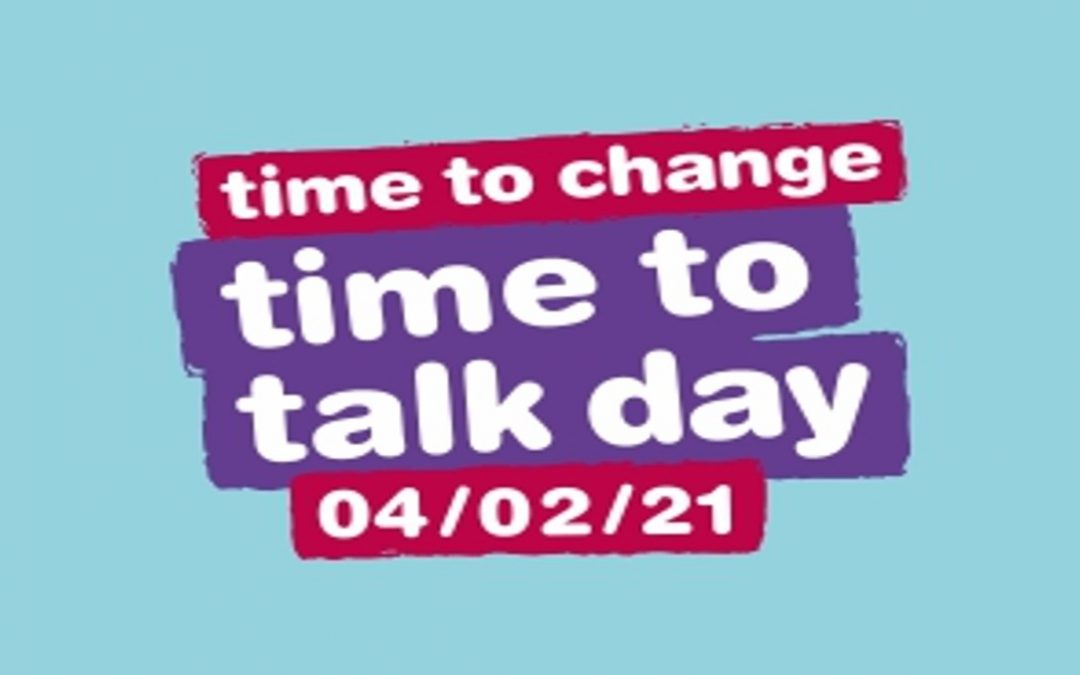
by admin | 29.06.2021
Looking after someone while working can be a lot to handle at once. You might be concerned about the person you care about while you work, and this may a negative impact on your well-being. It can be helpful to know about some of your rights at work and think about what can help you manage your caring and work responsibilities
1. The right to flexible working
Looking after someone can be exhausting and take up a lot of your time. If you also have to work, you may be entitled to request flexible working arrangements from your employer to help fulfil your responsibilities.
Flexible working can involve changing your work hours – you could start work earlier or finish later to help juggle your caring responsibilities. It could also mean to work remotely part-time or all of the time. You’re allowed to make a single request for flexible working each year. Your employer is legally obligated to consider your request, but they are allowed to refuse provided they have good business reasons. Therefore, it’s important to consider how the business will be affected, and how your manager may take it. Provide as much as information as possible about how you can continue to help the business from home, or how you can deal with any negative impacts your manager may be concerned with.
2. The right to time off in an emergency
There may be times when you can’t go in to work because of an emergency situation involving the person you’re caring for. If you’re responsible for another person, you have the right to time off in an emergency. You must inform your employer as soon as possible after the emergency has happened. These situations could include your normal care arrangements being cancelled, or if the person you care for dies or suffers an injury.
It’s also no surprise that happy employees produce better work. Employers who take active steps in taking care of their employees’ physical and mental well-being at work can help to keep staff turnover rate low. Here are a few tips:
Create a positive environment for carers
Research conducted by Carers UK show that carers really value having an understanding line manager and a supportive employer. Create a supportive environment where there is no stigma attached to carers identifying themselves. Display posters and newsletters on staff notice boards, outlining some of the carer-related benefits that they may not be aware of, such as carers allowance.
Having a carers’ support network
Identifying carers can be difficult. In fact, one in seven are responsible for supporting for their loved ones who are older, disabled or in a serious condition. Chances are you may have a few carers in your workplace, and perhaps they would feel more comfortable if they had someone to talk to about it – someone in a similar position to them.
Employers should try and provide information to carers about existing workplace carer support groups and what external support is available. Even if this isn’t exactly the type of support they want, it can still be helpful to communicate regularly via company polices or signposting posters to let them know that support is always available. It could also include contacting carers’ centres to receive personal advice on how to make the workplace a reassuring environment
Prioritise training for carers
A carer may feel that they are lacking progression at work, and perhaps forgotten about (even more so due to remote working). They may find it difficult to concentrate on their career, because they aren’t provided with the right support. Make it easy for people to understand what support is on offer for carers – provide additional training courses, seminars and subscriptions to further their learning. The people are the most valuable resource to a company and developing individuals and teams is the key to keeping people and organisations moving forward.
As always, we are here to help. If you feel you need more support with your role as a carer so that you can stay in employment, contact Harrow Carers at 020 8868 5224. We can offer you individually tailored support regarding your career, application advice, interviews, benefits you may be entitled to and much, much more…
Working for Carers are running a session on Balancing Working and Caring on Thursday 19th August – please click here for more information.
Working for Carers is a London-wide project that supports unpaid carers, aged 25 or over, to move closer to employment. The project is led by Carers Trust and delivered by its network of 24 partners across London. Working for Carers is funded by the European Social Fund and The National Lottery Community Fund. Call 020 8868 5224 Ext 218/208


by admin | 28.05.2021
Carers often express that they have little to no skills or experience to offer when they are considering returning to work – “I’m just a carer, I don’t have anything to offer”. The truth is, being an unpaid carer and looking after your loved ones gives you a wide range of experience, knowledge, and skills that you can bring to the workplace. It can be helpful to take a step back and look at all the transferable skills you’ve gained over the years.
There’s a simple exercise to this.
Make a list of your daily tasks
On a piece of paper, list out all the skills you have developed through your caring role that you think would be useful in the workplace. If this is a struggle, write down exactly what you do on a daily basis for an entire week.
“I have to pick up medication every Monday and book an appointment with our doctor every Wednesday”.
So, you may have superb organisation and time-management skills. It could also mean being able to locate documents quickly, or maintaining an up-to-date calendar. Staying organised can help one identify and prioritise what tasks need to be complete and when.
You could consider event planning or being a personal assistant, especially if you’re great at arranging appointments and running errands on behalf of others. Take a look through these fifteen job ideas; they’re suitable for organised people like yourself.
“I regularly communicate our situation to our doctor, and listen attentively to their advice”.
These are examples of excellent communication skills. These are vital in helping you get hired, land promotions, and be a success throughout your career. Being a good listener goes a long way too. This means to pay close attention to what the other person is saying, asking clarifying questions, and rephrasing what the person says to ensure understanding (“So, what you’re saying is…”). Your colleagues will love this as it shows you can truly engage in conversations.
If you excel at communication, you could consider a role in human resources. These specialists are usually responsible for finding the best candidate for the job. You’d be responsible for interviewing potential candidates or setting up meetings with managers. Although a degree in management or human resources is preferred, employers can consider your application if you have a degree related to marketing or communication.
If you don’t have a related degree, don’t fret. Here are more examples of careers for people with good communication skills.
“I help with personal care such as support with showering and dressing”.
So, you may have a tremendous amount of patience. A large portion of careers need some level of patience. For example, if you’re handling a customer complaint it’s important that you try to understand and sympathise with their situation.
Perhaps you’re not interested in sales or customer service, that’s perfectly fine. There are plenty of other jobs out there that require patience. You could consider being a childcare worker. Often your role would entail helping children with their school work, or being required to feed or bathe them if they’re younger.
If you don’t want any jobs that are similar to your caring responsibilities, you could look into animal trainers. These require a great level of patience as you’ll teach animals to recognise and respond to various calls and commands. If you love interacting with animals, this might be the job for you!
Here are more jobs that require patience skills.
We’re always here to help
When you think about it, the skills, qualities and experience of an unpaid carer are extensive. Writing out your daily tasks and the skills associated with each one makes it easy to identify which ones are transferable to the workplace. You’ll also find out which of your skills are more developed, as these would relate to the tasks that are often repeated.
We hope that by reading today’s post and completing the exercise above, it has helped with your confidence and given your CV a boost. If you need any help with job applications or interviews, give Harrow Carers a call at 020 8868 5224 for free consultation.
Working for Carers is a London-wide project that supports unpaid carers, aged 25 or over, to move closer to employment. The project is led by Carers Trust and delivered by its network of partners across London. Working for Carers is funded by the European Social Fund and The National Lottery Community Fund. Contact Working for Carers on 020 8868 522 Ext 218/208.


by admin | 06.05.2021
Nearly a third of working carers have not discussed their caring role in the workplace, with a quarter giving up their career completely because of how difficult it is to combine work and care.
Carers play a fundamental role in our society. They strengthen family ties and help loved ones have a better quality of life. While it can be greatly rewarding, carers tend to neglect their own needs especially if they don’t receive the required support.
It’s important that carers are supported while they are at work while they juggle their caring responsibilities. They may have excellent transferable skills that would be an asset to any workplace, including their flexibility and practicality. But carers don’t want to be treated as a special case. Instead, they prefer understanding from their managers and support in managing their caring responsibilities.
How to Identify Carers
Who is a carer?
A carer is usually responsible for supporting and caring for their loved ones who are older, disabled or in a serious condition. Some carers provide daily care at their home for several hours, while others may have to travel to support their loved one on a weekly basis. This may involve doing the weekly shopping, helping them with administrating medicine or managing their finances.
Many do not see themselves as carers
Identifying carers can be difficult. In fact, many carers do not identify themselves as carers (“I’m just a wife, husband, friend, neighbour”) and may not wish to raise this situation with their managers. Others may be reluctant to reveal this information for fear of being stereotyped.
Employers owe it to their employees to create a safe environment for carers to be open, so that they can receive the best support possible. From a business perspective, carers who feel supported by their employers are likely to be less stressed, resulting in greater job performance and increased commitment to the organisation.
Look out for sudden behaviours
In the workplace, there are a few signs to look out for that an employee may be a carer. They may frequently be adjusting their working hours, or attending many appointments. They may also seem distressed or anxious, a behaviour which is noticeably different from their usual self.
Displaying carer information
It can also help to display additional posters and newsletters on staff notice boards, outlining some of the work-related benefits that carers may be entitled to. Self-identification is typically the most likely method of identification for a carer.
Supporting Carers at the Workplace
To best support carers at the workplace, employers should strive for a comfortable and reassuring environment where there is no stigma attached to carers identifying themselves.
Here are a few ways to go about this:
Introduce a carers policy
It can be valuable to place a policy on carers to demonstrate your support to employees with caring responsibilities. This can outline the range of support the company can provide, including adaptable working arrangements and career breaks. The existence of this policy should be communicated regularly to provide continuous support.
Introduce a flexible working approach
Flexible working can help carers balance their caring and work responsibilities. This approach allows employees to adjust their hours or place of work to better suit their needs, so that they can continue to work effectively. It could also involve job sharing, part-time working, or moving them into a less stressful role for the time-being.
Every caring situation and job is different, so what suits to one person might vary to what suits someone else.
Carers’ support network
Understanding that they are ‘not alone’ is a crucial element of support. Employers can provide information to carers about existing workplace carer support groups and what external support is available. Even if this isn’t the type of peer support that carers want, signposting the support available can help break the isolation carers can experience. A great starting point would be to personally ask the carers what would work best for them.
Small changes can go a long way…
There are many ways employers can provide a supportive working environment for carers at their workplace. It doesn’t necessarily mean a major change in the organisation is required, rather a few small and simple adjustments can enable carers to feel secure and at ease at the workplace.

Working for Carers is a London-wide project that supports unpaid carers, aged 25 or over, to move closer to employment. The project is led by Carers Trust and delivered by its network of partners across London. Working for Carers is funded by the European Social Fund and The National Lottery Community Fund. Contact Working for Carers on 020 8868 5224 Ext 218/208.

by Admin | 26.01.2021
Thursday 4th February 2021. Small conversation about mental health has the power to make a big difference.
We know that the more conversations we have, the more myths we can bust and barriers we can break down, helping to end the isolation, shame and worthlessness that too many of us with mental health problems are made to feel.
Time to Talk Day is the day that we get the nation talking about mental health. This year’s event might look a little different, but at times like this open conversations about mental health are more important than ever.
We need your help to start the conversation this Time to Talk Day – together we can end mental health stigma.
For more information visit Time to Change

Working for Carers is a London-wide project that supports unpaid carers, aged 25 or over, to move closer to employment. The project is led by Carers Trust and delivered by its network of partners across London. Working for Carers is funded by the European Social Fund and The National Lottery Community Fund. Contact Working for Carers on 020 8868 5224 Ext 218/208.

by Admin | 14.09.2020
Saturday 26th September 1pm-6pm online using zoom – Celebrating the role of carers across the Capital.
The festival concept was proposed following consultation with carer representatives across London.
To book the Carers Festival – click the following link https://www.eventbrite.co.uk/e/celebrating-the-role-of-carers-across-the-capital-tickets-119850852125
To access the Carer Festival Programme click the following link https://londonadass.org.uk/annual-carers-festival/
To view the LondonADASS Annual Carer Festival flyer click here

by Admin | 17.08.2020
Writing a CV that will make you stand our can seem daunting, but if you can get help from employment support services such as Working for Carers.
Writing a CV
A good CV is one or two pages of A4, and includes the following:
– Personal details: name and contact details.
– Personal statement: short summary of your skills and career goals.
– Work experience: job title, organisation,employment dates and main responsibilities.
– Education: institution, dates and qualifications.
– Skills and achievements: in and outside work.
You can also add your hobbies, and note that references can be provided on request. Ask one or two people if they would be happy to provide a reference. This could be a manager, colleague, tutor or other professional.
Your caring role
You can mention your caring role on your CV, but this is up to you. It may help an employer understand any gaps in your work history.Think about the skills you have gained
as a carer as these may be useful in the workplace.For example, you might have gained skills in time management, form filling, budgeting and negotiating.
To read the CV’s and Coverings Information fact sheet, click here.
If you would like to join the Working for Carers CV Writing Skills online workshop on Thursday 20th August, please click here







